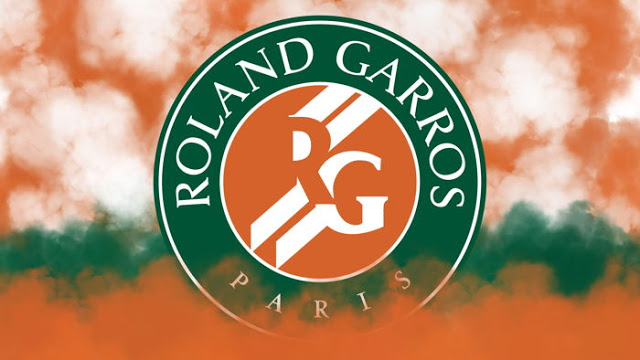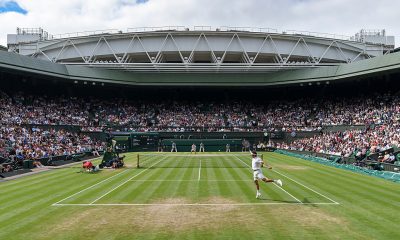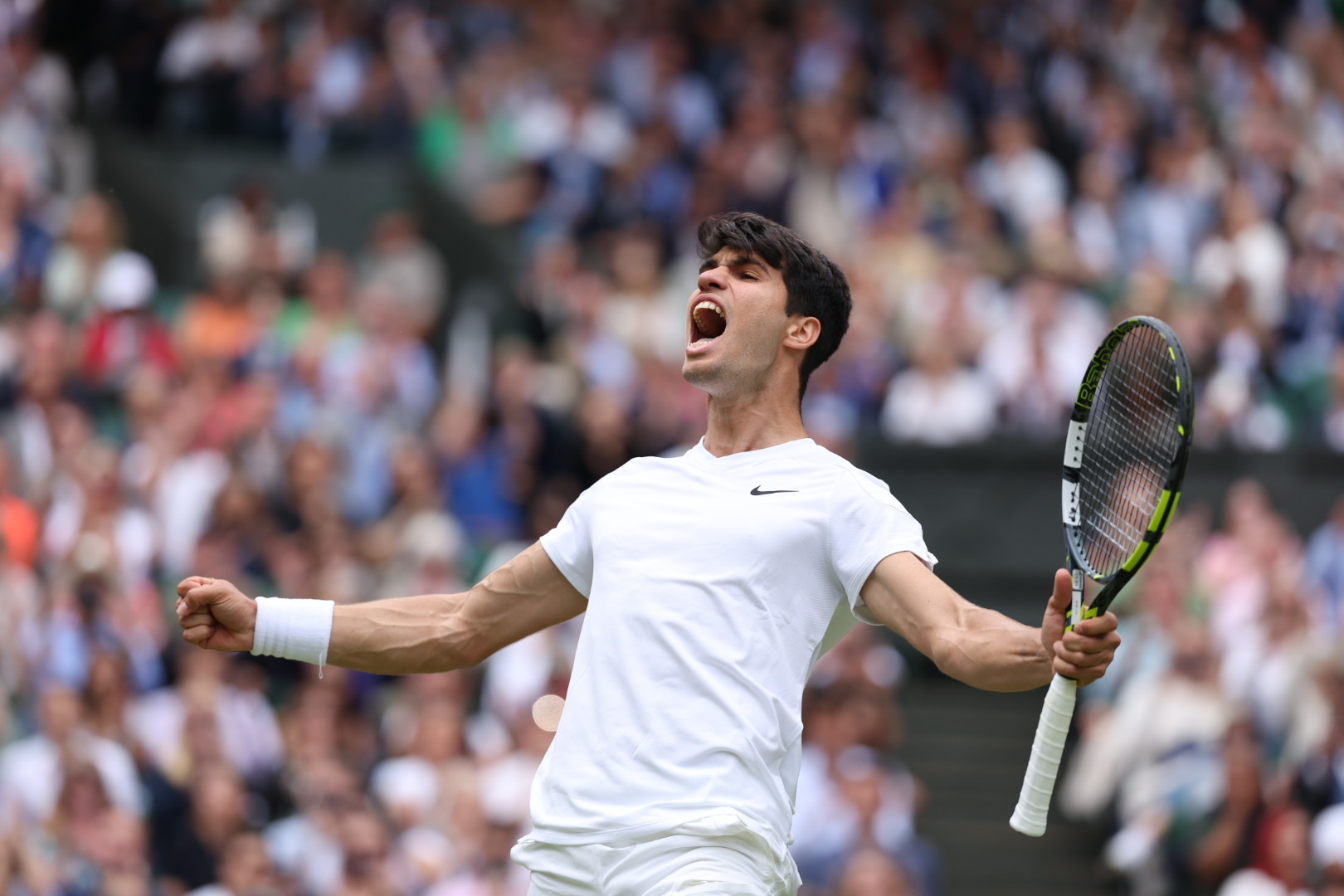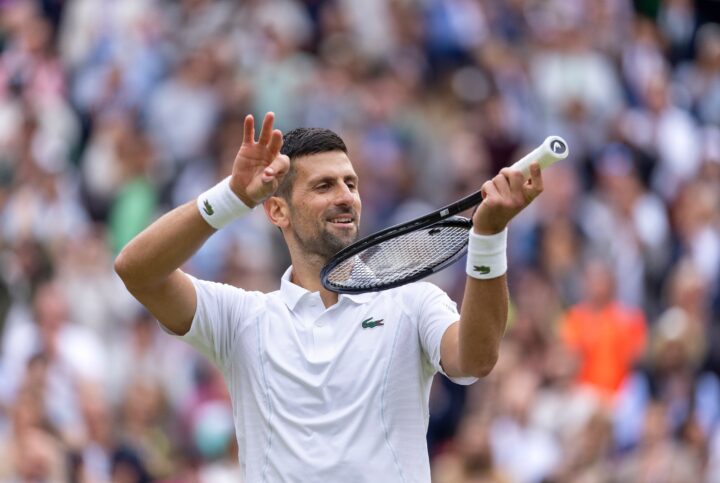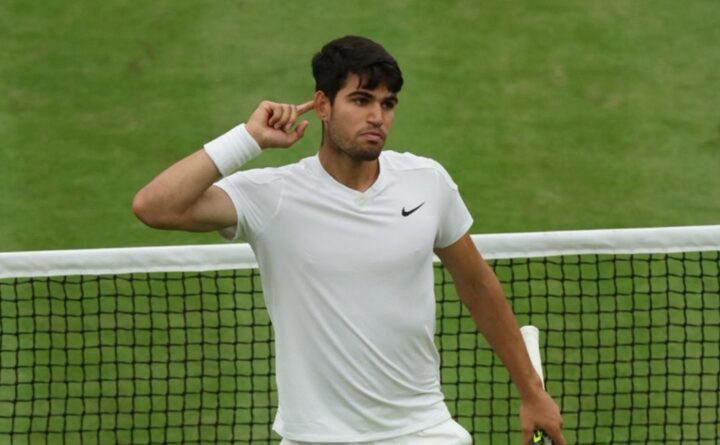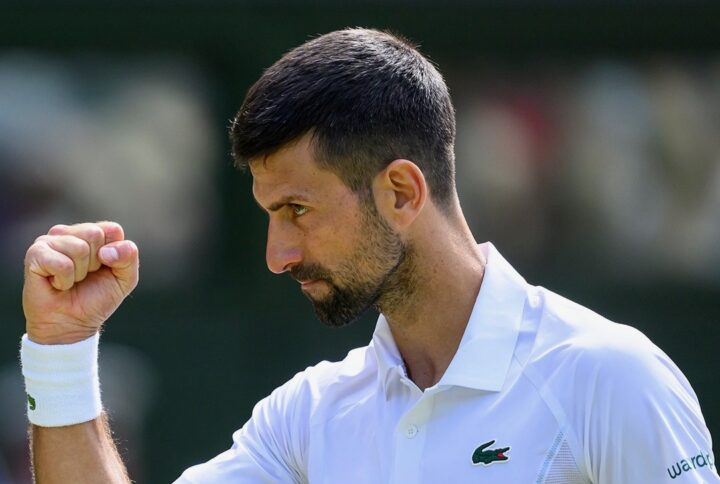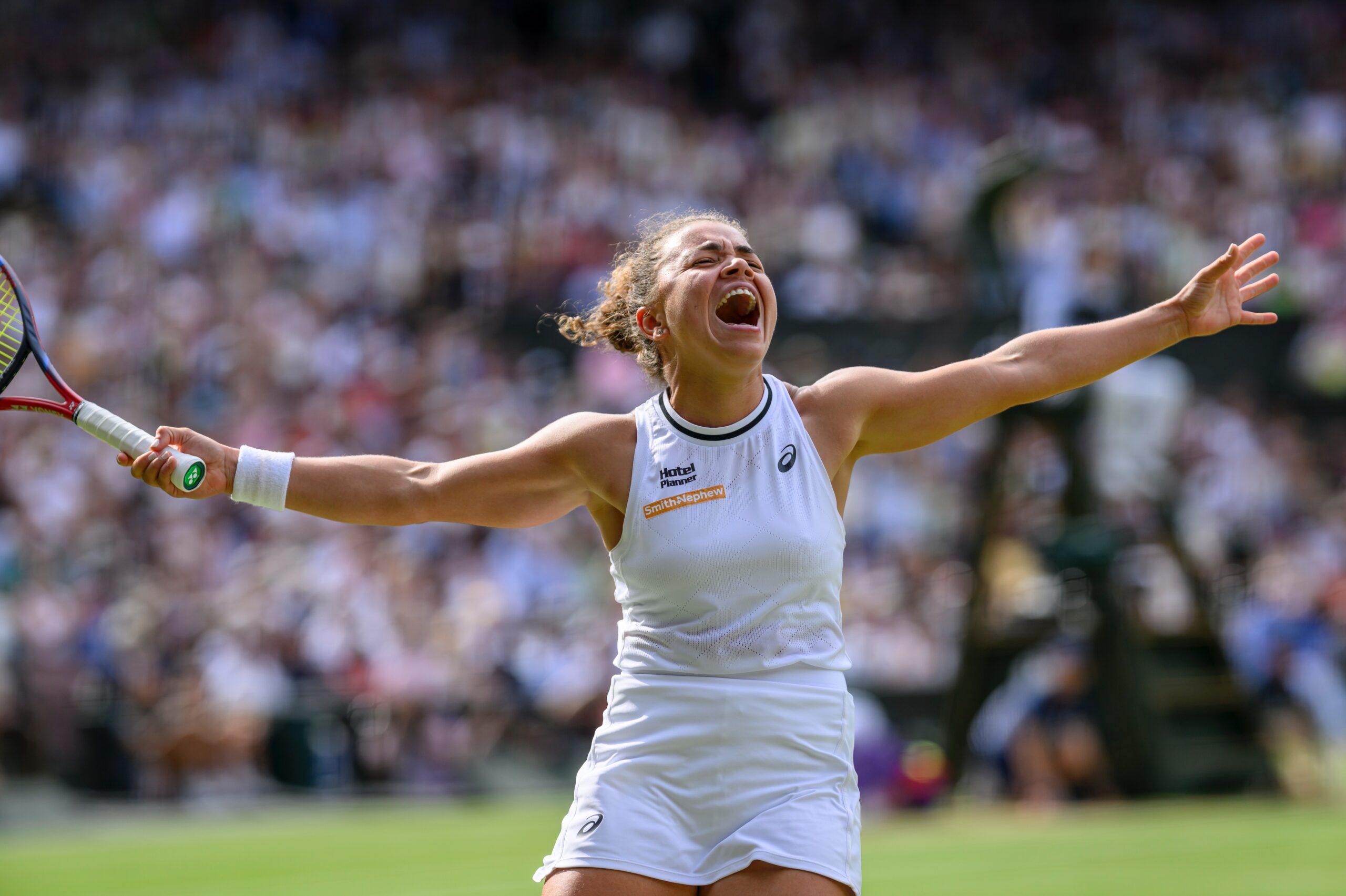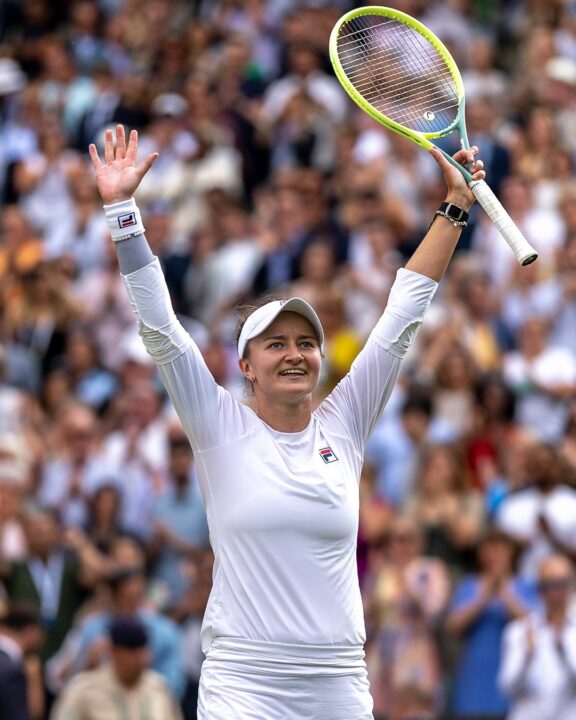The entire month of May, in Paris, fifty-years ago was a memorable and perplexing time. The local civil disturbance led by university students and workers eventually enveloped the entire country and nearly brought France to a virtual standstill. The police used heavy handed tactics in an attempt to clear the Paris streets of all of those who were seeking “individual rights”. (In truth, the reasons for the uproar were much more complex.) French President Charles de Gaulle stood strong and refused to resign. He finally decided to disband the National Assembly and hold elections on June 23rd. Though the voting made his Gaullist Party even stronger as it earned 353 of the 486 legislative seats that were available, de Gaulle lost. The French people made it clear that they believed the World War II hero had grown too old, too ego-centric and much too out of touch with the times to continue as their leader.
While the riots were raging, tennis history was being made. Roland Garros, contested from May 27 until June 9, 1968, was equally revolutionary. It was the first Grand Championship of the Open Era. Allen Fox took a break from completing his Ph.D. in psychology at UCLA in Westwood, California to play the tournament. (It is ironic that the tumult in the work places provided the people of Paris with free time and looking for a diversion, they came in record numbers to Stade Roland Garros.)
The recollections of Fox, a regular U.S. Top 10 performer, offer “looking back” insight on a period when the game, much as the world as a whole, dramatically changed its course.
In his first-round match at Roland Garros, Fox routed Alfredo Acuna of Peru 6-2, 6-1, 6-0. “Alfredo was a great guy and became a good friend of mine”, he remembered. “He actually became the best player in Peru, but he was young then, and I was especially tough on young, inexperienced players. I don’t think I realized how good he was, so I was loose and confident. I always played matches at 100%, so I wasn’t about to ease up on him in a major championship.”
John Alexander was Fox’s next opponent. Soon to be 17, he was an Australian star in the making. “He was young and talented, and though I didn’t realize it at the time, I was slightly over the hill by 1968. But, I thought I would beat him anyway because the clay slowed his attacking game down.”
As a UCLA undergraduate, Fox was a three-time All-American, between 1959 and ‘61. He won the NCAA doubles title with UCLA teammate Larry Nagler in 1960 and was the singles champion in 1961. While these are impressive tennis statistics, he was more fulfilled by his academic accomplishments. As a senior, he earned All-UCLA and All-University of California Athlete of the Year honors, which were presented to the Best Scholar-Athlete in the University of California system.
With all his “educational smarts”, Fox made a critically bad choice the night prior to his match with Alexander. He recalled, “I had never played him before. But, I went out the night before the match and ate sausages and sauerkraut for dinner. Then I was up all night with diarrhea and vomiting. It was a hot day, and by the fifth set I was starting to cramp. I played ‘within myself’ to avoid the cramps, but when I got an easy volley and put it away for double match point, I got excited and really cramped. I was up 40-15 on my serve and laying on the court with cramps all over my body. Alexander was kind enough to give me five minutes to work them out, which I barely did. When I was finally able to serve, I ‘pushed’ it in. He returned it and came to net, and I choked on a backhand passing shot. On the next point, I came to net and he lobbed. I couldn’t jump, so I just stood there as the low lob simply went over my head. At 6-6, I finally had to retire”.
The score that went into the Roland Garros record book was 3-6, 6-3, 3-6, 11-9, 6-6, Retired. Fox added, “I was lucky I didn’t end up in the hospital. I was so dehydrated.”
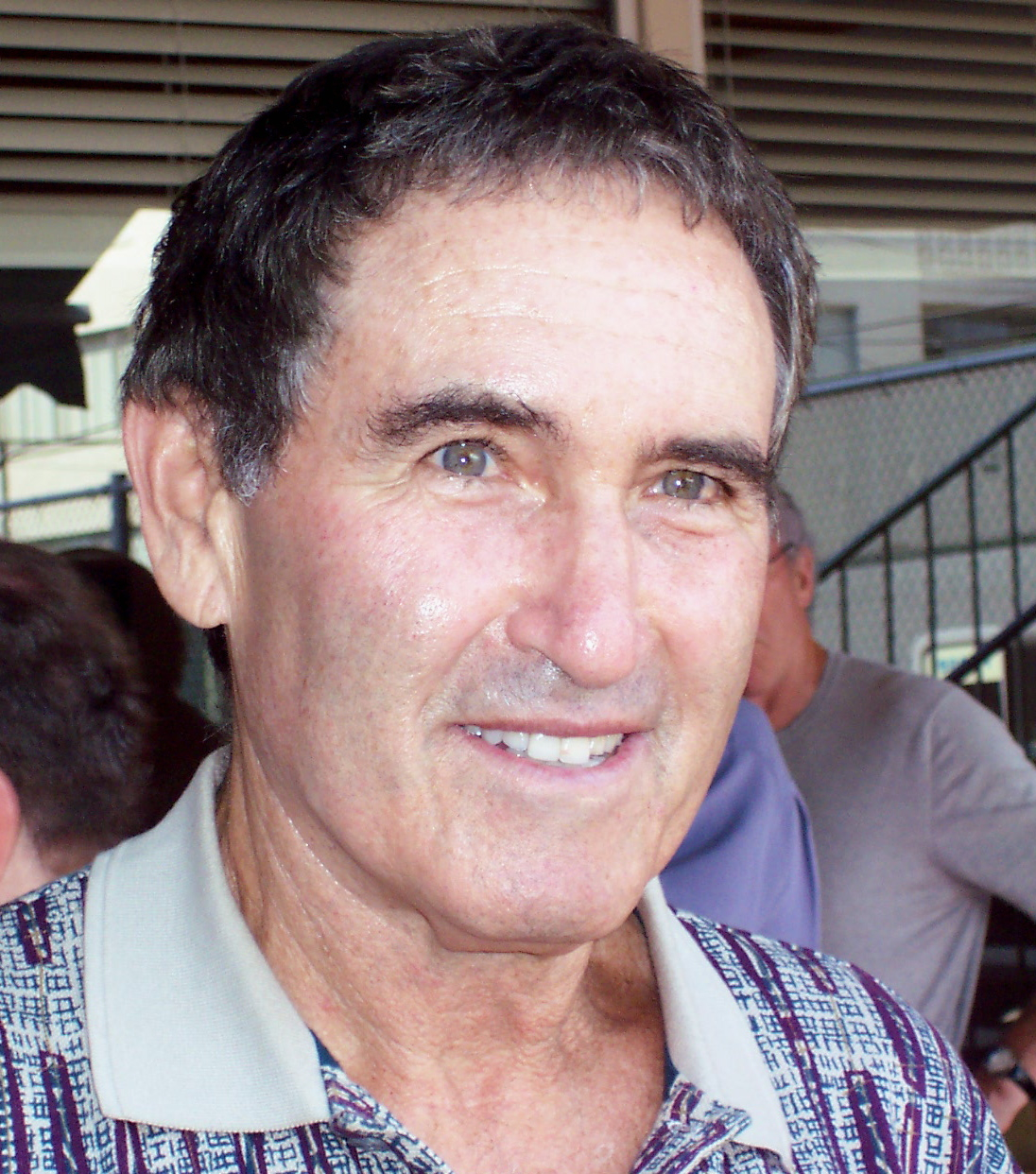
He made his Roland Garros debut in 1965, and explained, “That was the year I traveled with Donald (Dell, who would go on to found ProServ, the agency that represented players like Arthur Ashe, Stan Smith and Jimmy Connors to name just a few of his clients). We spent six months in Europe and six months in Africa.”
In his first match, Fox played Billy Knight of Great Britain in the second round, (because both players had first round byes). After winning the first set 6-0, Knight took control and closed things out, 6-2, 6-2, 6-2. “I don’t remember all the details, but I do remember that he had a big topspin forehand, flaming red hair, and moved fast around the court. As an aside, I generally liked playing lefties (as Knight was) because they served into my backhand which was my best side, and they tended to slice their backhands (which Knight did) and I could get to the net attacking that side. Clearly, it didn’t do me much good against him.”
In 1966, a year later, Fox accomplished a never to be equaled triumph. Having just begun graduate school at UCLA, he rode his motorcycle each day from the university to the Los Angeles Tennis Club, in West Los Angeles, to participate in the Pacific Southwest. Eight of the world’s top 10 players were in the draw, and he scored a “personal Grand Slam” defeating Wimbledon champion Manuel Santana, Roland Garros titlist Tony Roche, U.S. National winner Fred Stolle and Australian titleholder, Roy Emerson. (The tournament was held annually the week following the U.S. National Championships in Forest Hills, New York, and Los Angeles served a stop-over for Australian and other international players who had played at Forest Hills and were on their way home.)
“In the round of 16, I played Santana,” Fox said. “It was a hot and smoggy day. I had grown up in Los Angeles, so I had ‘leather lungs’. I won a close first set, and Manuel didn’t have much left in the second. I look on it as a ‘cheap victory’.”
Roche was next up. “I started very well and began feeling I could play with these guys,” Fox noted. “I won the first set and was up 4-1 in the second and serving, when ‘the incident’ took place. On the first point, I hit the best backhand passing shot I had ever hit. On the next point, he hit a return and I scraped a backhand volley off my shoestrings. I hit it up the line and it was just in. Roche got to the ball and hit it two yards wide. In those days, the linesmen called the line through the length of the court. The guy making the call went into some sort of ‘psychic trance’ and signaled my shot was good. He forgot to call Roche’s out. The umpire, thinking the lineman had called Roche’s shot good, said the score was 15 – 15. I went crazy. I started jumping up and down in protest. Roche, who is one of the classiest guys you will ever meet, walked up to me and said, ‘I’ll throw you the next point’. I said, ‘next point, I want the next two, I should be up 30 – 0’. I really wanted to win the match because the semifinal was going to be on television and it would be seen in Los Angeles.”
After downing Roche in straight sets. Fox, who was half way through his own Grand Slam, faced Stolle in the semifinals. He remembered, “For whatever reason, I used to beat him regularly. Though the public considered me the underdog, I was confident. I had defeated him the year before at the Southwest, and felt I was the favorite. Because I was so confident, I didn’t play well. I played safe. It was a ‘hold on’ win.”
With another straight set victory in hand, Emerson was his final round opponent. “Prior to the start of the match, I would have bet a lot of money he would beat me,” Fox admitted. “He won the toss and elected to receive, figuring I would be tight. I won the game at love. In a short time, I realized I was playing very well. He had a tough serve, yet I would hold mine at 15 and would take him to deuce or have ads. The ball seemed to be coming ‘so slow’ I could do whatever I wanted. Years later I realized I was in what people have called ‘the zone’.”
Fox won the first set 6-3 and was up 5-3 with Emerson serving in the second. “I did get a bit nervous in this game,” he recalled. “I got the score to deuce and he served wide. I was outside the doubles alley and bunted back a chest high return that he volleyed into the open court. Ordinarily with Emerson, on a shot like that, the point was over, and you just moved to the other side to receive his next serve. But, I ran it down, my legs were moving with lightning speed, and threw up a very high lob. He was on the sunny side [of the court] and missed it.
“On my first match point, he ran a serve off the line and I hit the return into the net. On the second deuce, he served wide again, I just got my racquet on it, ran his volley down, tossed up another very high lob and he missed the overhead again. After missing his first serve, he played it safe spinning the second one in. It was short, and I really hit it. He ran wide, just got to the ball and floated a ‘duck’ back to me at mid-court. I remember running to the ball thinking I will never, in my life, have an easier shot to win the Pacific Southwest. I also remember not being able to feel my arm. I was so tight, but I hit the ball as hard as I could with as much top spin as possible. Thank God it went in.”
Fox remembered, “The crowd went wild. I got a standing ovation because I was such an underdog.”
After he completed his education, Fox became a widely recognized sports psychologist, and has worked with a host of players on the tour. He authored a number of highly respected books including “Think to Win: The Strategic Dimension of Tennis”, “If I’m The Better Player, Why Can’t I Win?”, and “The Winner’s Mind: A Competitor’s Guide to Sports and Business Success.” He also served as the men’s tennis coach at Pepperdine University in Malibu, California, for 17 years. Among the performers he guided were Brad Gilbert, Kelly Jones and Martin Laurendeau, former Canadian Davis Cup team captain and current coach of Denis Shapovalov.
“Looking back for players like (Rod) Laver, (Ken) Rosewall and (Richard “Pancho”) Gonzalez, Roland Garros in 1968 was very important,” Fox concluded. “It was significant because they had been excluded for so long. Now, all the good players could compete. The reaction of the amateurs was simple. With Open Tennis, there were more good players to worry about.”
Fifty years may seem like a very long time when one is young and hopeful. Looking back on those years is a curious mix of eye opening reminders of a life well lived and every step that it took to arrive at today. The Terre Battue of Roland Garros was the red carpet that opened the door to countless players who spent years perfecting their skills and now, today’s players are able to take full advantage for their labors. Open Tennis provided that platform, and it all began fifty years ago.
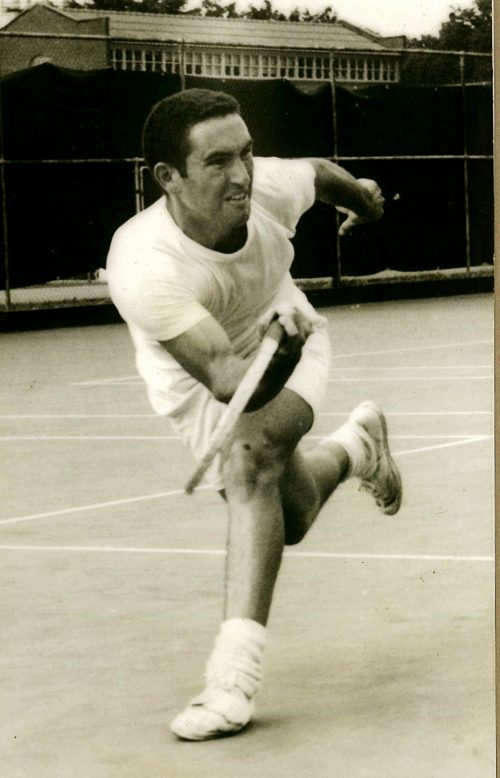


 Hot Topics3 days ago
Hot Topics3 days ago
 Latest news3 days ago
Latest news3 days ago
 Hot Topics2 days ago
Hot Topics2 days ago
 Hot Topics3 days ago
Hot Topics3 days ago
 Focus2 days ago
Focus2 days ago
 Focus2 days ago
Focus2 days ago
 Focus2 days ago
Focus2 days ago
 Hot Topics2 days ago
Hot Topics2 days ago






